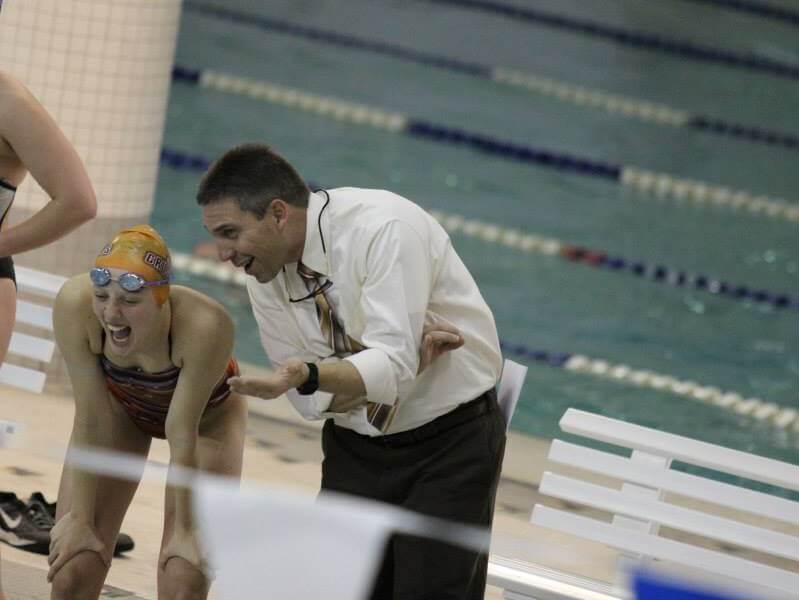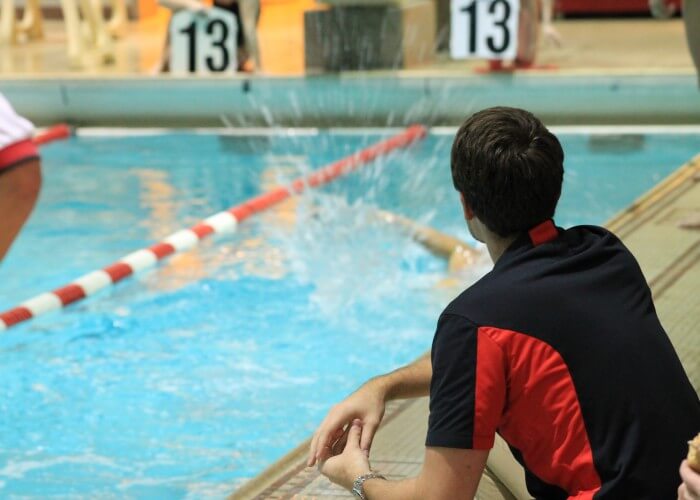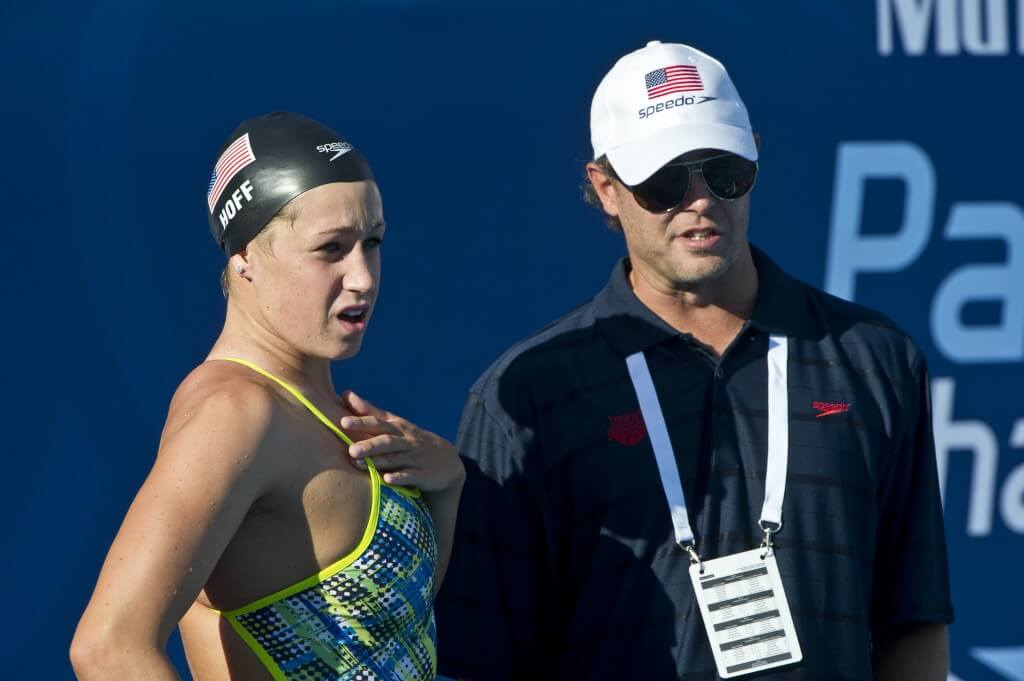5 Tips for Newbie Coaches

By Ashlee Weingarten, Swimming World College Intern
Your first year of coaching may be daunting, especially if you are fresh out of the pool from your own swimming career, or if you are still part of a swim team. Although you may have been swimming for years, you may come face-to-face with problems that would have never crossed your mind as a swimmer.
Coaching takes more than just the understanding of how to swim. When you are a coach, you are no longer thinking of the improvement of your own swimming career, but rather the careers of every swimmer on your team. The fundamentals for coaching and swimming are inherently different. Swimming as all about being taught the proper way of executing every stroke and the corresponding skills, whereas coaching forces you to go back to the basics and learn the reasoning behind all you already know.
The following are a few guidelines to help you newbie coaches kickstart your career.
1. Set rules.
If your swimmers are used to seeing you as a swimmer and not a coach, you have to set boundaries. It is still okay for you to be friendly with everyone, but you cannot let them walk all over you. You may be known as a swimmer, so showing your authority is necessary for you to be seen as a coach.
2. Stand your ground.
Try not to go back on your word. If it seems like you can be broken down, you make give the impression that you are not as serious as you seem. This applies to both your swimmers and their parents. At times, parents can be a lot harder to deal with than swimmers. Let the parents know where you stand, and if you need advice, don’t be afraid follow the advice in #4.
3. Be approachable.
Nothing is scarier for a swimmer than a coach that is hard to talk to. Swimming involves a lot of learning and swimmers need to be able to get advice from you. Listen to what your swimmers have to say. Most of the time there is a reason that something does not feel right to them. Help to figure out what the issue is and the best way to resolve it.
4. Ask questions.
Just because you are now a coach, does not mean you have to stop asking questions and start answering them. Coach Jerry Foley, head coach at Susquehanna University, said “as a young coach there is so much to learn and most veteran coaches are eager to share their experiences if you just ask.” In order to help your swimmers progress, you will need to figure out the best ways to do so. Coaches, whether young or old, are there to help one another, so try and utilize them while you can.
5. Have fun.
Just because you are a coach, does not mean that everything you do has to be hard work. Remember to make swimming fun for not only your swimmers, but also yourself. After years of swimming, you probably know what it is like to have practices constantly drag on. Try not to let your practices get like that. Keep the kids involved and make an effort to see what parts of practice they like.
Being a good swimmer does not make you a good coach. There will be times that coaching is hard on you, but use this experience to help you gain coaching skills as well as memories. Looking back, some of your fondest memories may be bonding with your teammates and coaches. Your experience as a coach will not only influence you, but also the swimmers you help along the way.
Although transitioning from a swimmer to a coach can be difficult, the rewards are great. There is nothing more exciting than to see help a swimmer develop skills that will last for a lifetime. Their success feels like your success and that feeling will stay with you forever.
Here’s to a long coaching career! Good luck!







I add #6: feed your swimmers well. The way to a swimmer’s heart is through his/her stomach!
Add# be you…..not a copy of someone else
Nick Garrett